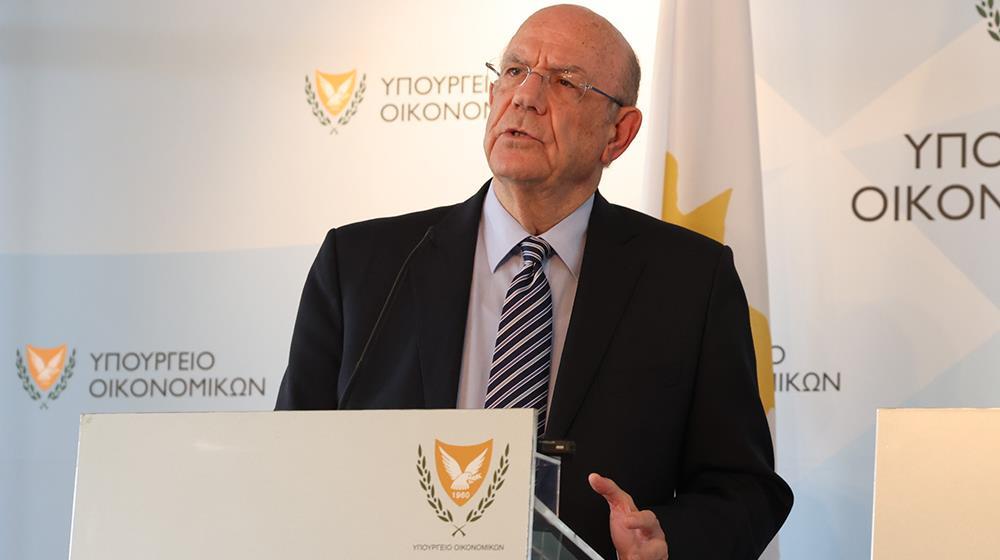Public debt is expected to fall close to 57% of GDP by the end of 2025, much earlier than previous estimates that projected a decline below 60% by the end of 2026, Finance Minister Makis Keravnos has said.
Speaking on 27 August, following the conclusion of the Cabinet meeting, Keravnos noted that the Cabinet discussed the European Commission’s assessment report on Cyprus under the 2025 European Semester.
Based on the report, Cyprus shows significant positive characteristics: economic growth remains strong despite the fragile international economic environment, and high primary surpluses are being recorded, which are being used for the rapid reduction of public debt, the Minister said.
Keravnos stressed that regarding public debt, “the target was to be at 60% by the end of 2026. Today, with the government’s and the Finance Ministry’s handling, we estimate that debt will reach around 57% by the end of 2025.”
“This is very important, because it will release additional financial capacity for our country to increase development expenditure and spending on defence,” he added.
He also noted that the report highlights that macroeconomic imbalances in the Cypriot economy have eased, particularly concerning external and private debt, and that Cyprus is no longer classified as a country with imbalances.
“The efforts to diversify our economic model, the report notes, are delivering steady results, and the country is improving in most of the Sustainable Development Goals as defined by the UN,” Keravnos added.
The Minister, however, also pointed out the challenges noted in the report. As he said, there is a reference to a challenge in fiscal trajectory, as the expenditure ceiling for 2025 was exceeded, rising to 6.8% instead of 6%. “The report is essentially telling us to be careful. At the same time, however, it says that this trend of exceeding the ceiling, something that we can of course correct in the next budget, coexists with high fiscal surpluses and the rapid reduction of the debt-to-GDP ratio,” he underlined.
Other challenges mentioned in the EU report concern Research and Innovation. “We continue to allocate a low percentage of GDP, at 0.29% compared to the EU’s 0.72%, and continuous efforts are being made to improve it,” he said. However, he noted that improvement must also come through private-sector investment.
The report also highlights challenges relating to the underdeveloped capital market. “Our companies rely mainly on bank financing, and there are significant difficulties in obtaining funding from banks,” he said. On this issue, Keravnos noted that the Government has already established the Cyprus Equity Fund, amounting to €37.5 million. “The fund is managed by the EIB on our behalf. The fund has already begun its investment activity, providing financing to various companies, mainly in the technology sector, which will be of great help,” he said.
According to the Finance Minister, another initiative to address this issue is the creation of the National Business Development Organisation, for which the Cabinet has already approved the roadmap. He also noted that efforts are underway to improve the governance framework of state-owned entities based on international standards.
Additionally, the Minister said that bureaucracy must be further reduced and also referred to the challenge of the energy transition, noting that Cyprus still depends on carbon-based fuels and the absence of natural gas in its energy mix.
Other challenges highlighted include waste management, water management, and the gap between market needs and available skills in the labor market. “The report acknowledges that the Government is taking actions on these issues, such as the introduction of technical high schools, which are being implemented starting this year,” he said.
(Source: CNA)









